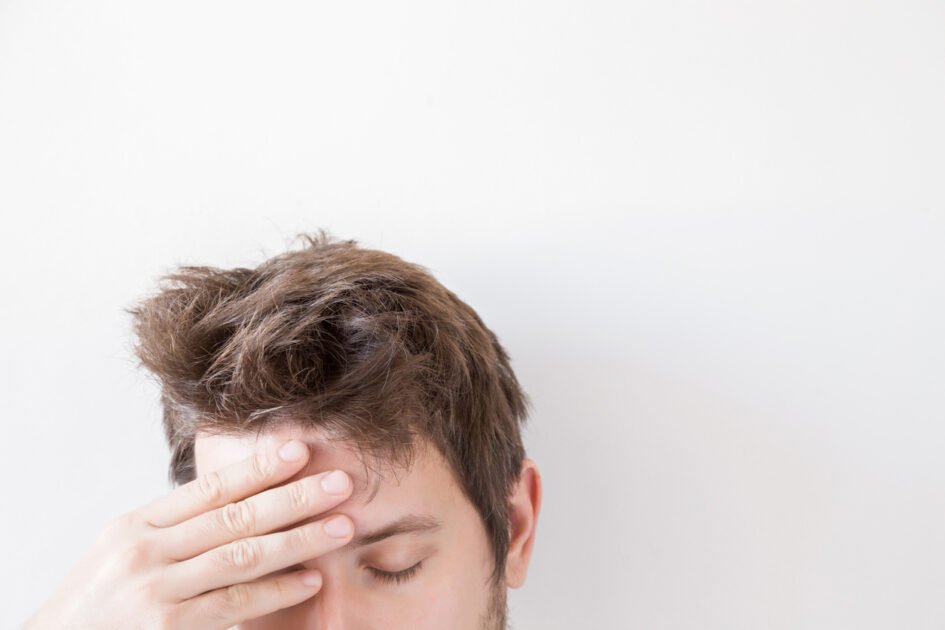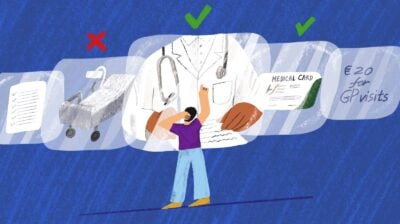What to do if you get a concussion
A knock on the head could have serious consequences

It may not hurt like a sprained ankle, and it might not look as bad as a broken leg, but the harsh truth is that concussion, sometimes known as traumatic brain injury, is one of the most under-ratedly dangerous injuries a person can sustain. It can be common among sports players, and it's something that needs to be taken seriously.
If you’re a keen sportsperson, there are a few things you should know about concussion.
How do I know if I’m concussed?
You may think you’re feeling okay after a heavy hit during a match, but if you experience any of the below symptoms within the next few hours or even next few days of the incident, the chances are you’ve suffered some form of concussion.
Often, players who suffer concussion during matches feel like it’s not that big of an issue, and volunteer to play on. However, this is never an acceptable response.
Symptoms of concussion
- Headache or a feeling of pressure in the head
- Temporary loss of consciousness
- Confusion or feeling as if in a fog
- Amnesia surrounding the traumatic event
- Dizziness or "seeing stars"
- Ringing in the ears
- Nausea
- Vomiting
- Slurred speech
- Delayed response to questions
- Appearing dazed
- Fatigue
What to do in the event of a concussion
According to a 2011 survey, 95% of rugby players remained on the field after suffering a concussion because they didn’t think it was a serious issue. This can lead to players trying to hide serious symptoms in order to play on in games, which is the absolute opposite of what should be done.
If you or your coach/team medic think that you’re suffering from concussion, you should:
Stop playing
Stop playing, leave the field, and don’t come back on. Playing on with concussion can aggravate the symptoms, and this can be extremely dangerous.
Most coaches will understand the seriousness of concussion, but if they or your teammates tell you to keep playing, don’t give in. It’s your health, so do what’s best for you.
Take a rest
The after-effects of concussion can last for days, so it’s important that you don’t aggravate it. Some experts recommend taking a break from high energy light sources such as computers, TVs, phones and tablets which can make it worse.
If you’re feeling really shaken, don’t be afraid to ask for a couple of days off school/work/college, as it may be necessary to help you recover.
When to seek medical attention
If you continue to suffer from headaches, vomiting, dizziness, seizures or memory loss in the aftermath of a head injury, seek urgent medical attention.
In general, it's always a good idea to see a doctor in the event of any head injury. It's better to be safe than sorry.
Avoid dangerous tackles
Although it’s always recommended that you wear adequate protection when playing sports, nothing can fully protect you from the risk of concussion.
In fact, research has shown that the presence of protective gear can tempt sportspeople into trying more dangerous tackles in the false belief that there won’t be any consequences, which is untrue.
When a teammate is concussed
If you’re a teammate, you’ve got a duty of care too. Remember, concussion can leave a person dazed and confused, and they won’t be in the best position to make decisions. If your teammate is insisting on returning to action after being concussed, encourage them to stop playing and rest.
https//www.youtube.com/embed/JA-Qcfh6gSs?feature=player_detailpage






